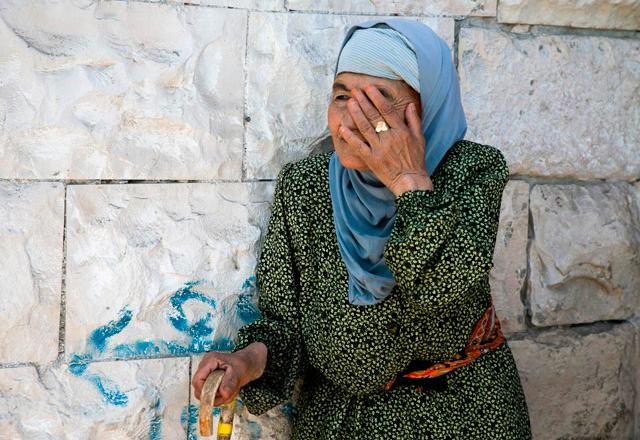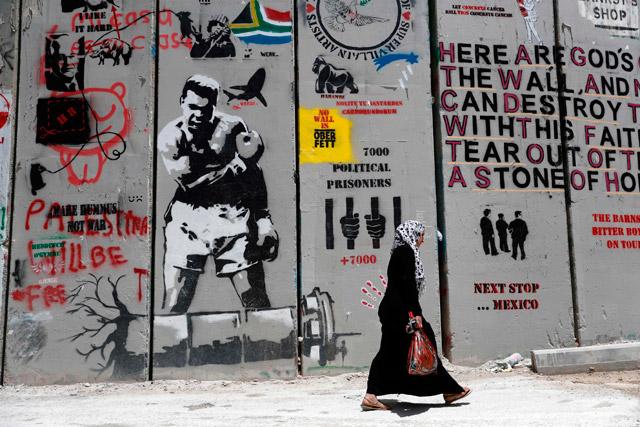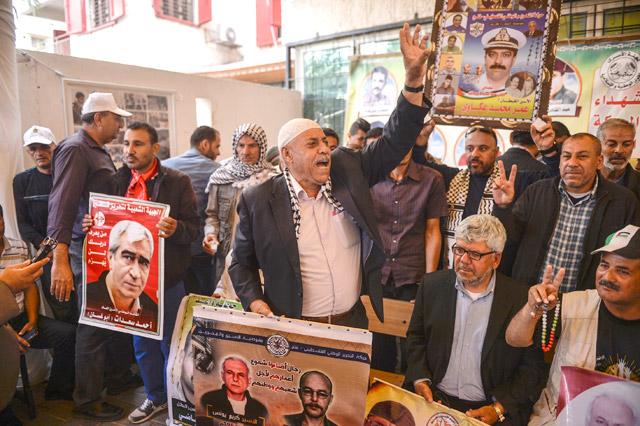You are here
Research questions whether Israel considered 1967 atomic blast
By AFP - Jun 06,2017 - Last updated at Jun 06,2017

A woman mourns during the funeral of Nawaf Infiaat, a 16-year-old Palestinian teenager who was killed after reportedly carrying out a stabbing attack on an Israeli soldier, in the northern West Bank town of Yaabad on Saturday (AFP photo)
OCCUPIED JERUSALEM — Research suggesting Israel may have considered detonating an atomic device on the eve of the June War 50 years ago to deter Arab states sparked debate and denials Monday.
Israel's presumed status as the Middle East's sole nuclear-armed nation remains a highly taboo subject for the country, which neither confirms nor denies such capability.
The foreign ministry declined to comment, but one minister who has also written a book on the June War dismissed the claim.
Research by Avner Cohen, a historian who specialises in Israel's nuclear programme, sparked the debate coinciding with the 50th anniversary of the war, fought from June 5-10, 1967.
The research was published on Monday on the website of the US-based Wilson Centre think tank, whose work includes tracking nuclear proliferation.
Findings were also published over the weekend in the New York Times.
Cohen's research includes interviews with Yitzhak Yaakov, a retired Israeli brigadier general who had been head of weapons research and development.
Yaakov, who died in 2013, told Cohen that in 1967 he came up with a plan called "Samson" or "Shimshon" in Hebrew that would involve detonating an "improvised" atomic device purely as a warning.
Yaakov stressed that Israel had not yet developed a nuclear bomb.
The plan called for it to be detonated atop a mountain in the eastern Sinai Peninsula some 20km from the Abu Ageila Egyptian strategic military complex.
Cohen wrote: “A small paratroop force would have diverted the attention of the Egyptian army in the area to allow the team to prepare the nuclear demonstration upon an order from both the prime minister and the chief of staff”.
‘It was so natural’
The blast would have been seen “for many tens [of] kilometres throughout the Sinai and the Negev” desert, he wrote.
“Look, it was so natural,” a transcript on the Woodrow Centre’s website quoted Yaakov as saying.
“Some things are so natural that you don’t need to find explanations about their origin. You’ve got an enemy, and he says he’s going to throw you to the sea. You believe him. He says he’s going to throw chemical weapons on you... .”
“What are you looking for? Anything you can do to stop him. How can you stop him? You scare him. If you’ve got something you can scare him with, you scare him.”
The nuclear claims led to debate in Israel, where Michael Oren, a deputy minister, parliament member and Six-Day War historian said they “did not hold water”.
He said that “tens, even hundreds, of thousands of documents recently declassified on the Six-Day War... do not contain even a half a hint” of the claims.
Cohen, whose books include “Israel and the Bomb”, also expressed scepticism over whether the plan described by Yaakov was being seriously considered.
“I ultimately agree... that on the eve of the 1967 war, Israel’s leadership was not seriously considering conducting — or even capable of conducting — a nuclear demonstration,” he wrote.
“Yet [Yaakov’s] testimony does reveal — and for the first time from an identifiable source — that Israel had the capability to improvise a nuclear explosive device in June 1967.”
Cohen also told Israeli news site Ynet that Yaakov “describes events as he saw them from his own personal point of view. Does it accurately fit with the overall objective and the historical truth? It’s hard to tell. I had a lot of questions about this.”
Related Articles
OCCUPIED JERUSALEM — Israel on Thursday released thousands of previously classified official documents charting political decisions during t
Little noticed amid the furore over one of Israel's most contentious policies, a small but growing number of Arabs are moving into Jewish settlements on occupied land in East Jerusalem, drawn by cheaper rent and better services.
DOHA — The Palestinian Islamist movement Hamas unveiled Monday a new policy document easing its stance on Israel after having long called fo
















